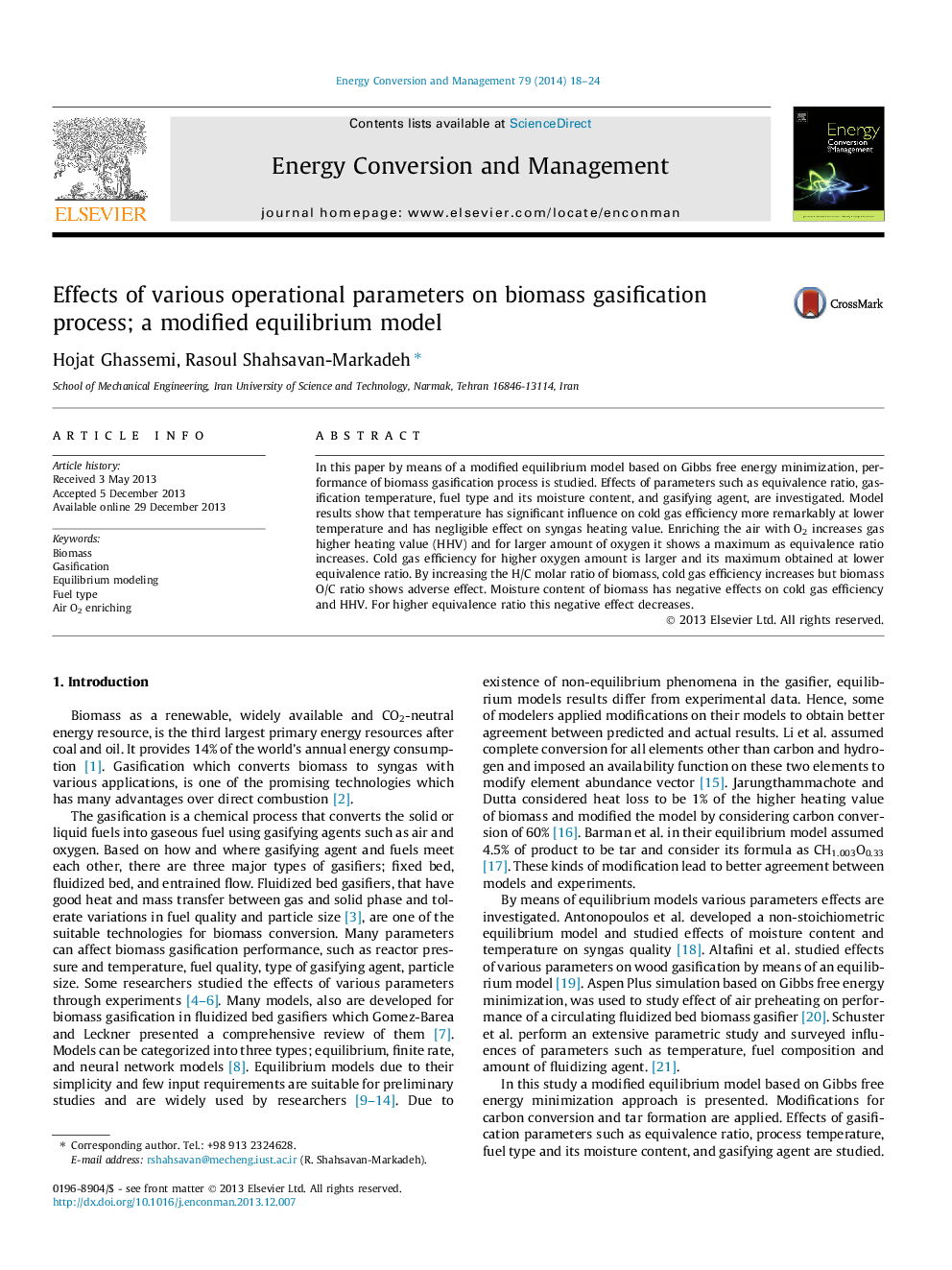| Article ID | Journal | Published Year | Pages | File Type |
|---|---|---|---|---|
| 771986 | Energy Conversion and Management | 2014 | 7 Pages |
•Gasification process performance under different conditions is investigated.•An equilibrium model based on Gibbs free energy minimization is presented.•Some modification for including the carbon conversion and tar formation is applied.•Effects of equivalence ratio, temperature, fuel type and gasifying agent are studied.
In this paper by means of a modified equilibrium model based on Gibbs free energy minimization, performance of biomass gasification process is studied. Effects of parameters such as equivalence ratio, gasification temperature, fuel type and its moisture content, and gasifying agent, are investigated. Model results show that temperature has significant influence on cold gas efficiency more remarkably at lower temperature and has negligible effect on syngas heating value. Enriching the air with O2 increases gas higher heating value (HHV) and for larger amount of oxygen it shows a maximum as equivalence ratio increases. Cold gas efficiency for higher oxygen amount is larger and its maximum obtained at lower equivalence ratio. By increasing the H/C molar ratio of biomass, cold gas efficiency increases but biomass O/C ratio shows adverse effect. Moisture content of biomass has negative effects on cold gas efficiency and HHV. For higher equivalence ratio this negative effect decreases.
